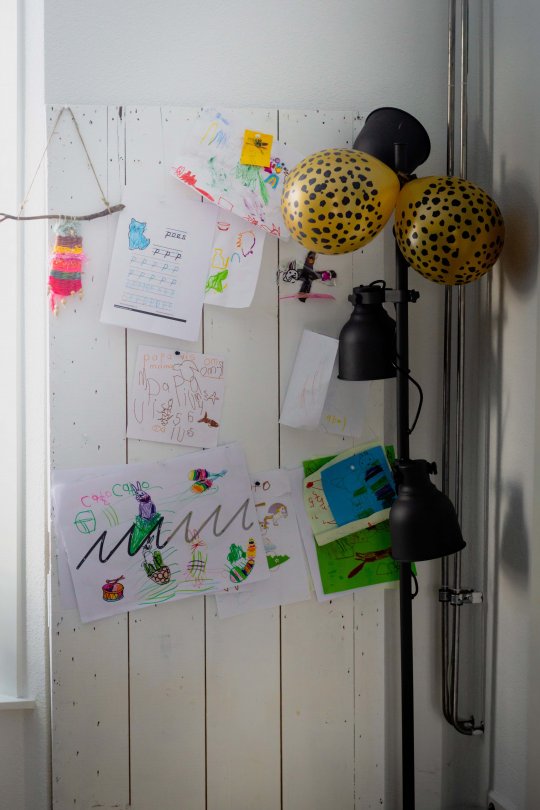A board for family adventures and a list of new challenges. How to creatively organise a day at home with children?

Home Event Board
Fridge doors often serve as home information boards – photos and drawings depict some past moments and creative fun. Sometimes they display timetables or lists of errands. What if it were a board showing your current... adventures? A place where your child would see in the morning what will define this day – e.g. a colour, a type of activity, a word or a game that you will play together? Perhaps you too can get into themes of the day. How about all household members take turns in planning events for your household? You can look for inspiration HERE, in the description of the scenery board for the series of classes entitled “In the Kingdom of Feelings”. Isn’t this an interesting way to make every day meaningful? And an opportunity to do something exciting for both your children and for you?
Development Board
We are constantly learning throughout our lives. However, the current situation means that we are often forced to quickly master skills that we have not developed so far. So are our children. As you know, this is not an easy process. When we learn, we make mistakes, we don’t always manage to do what we want, we get tired and even feel discouraged. The important thing is not to give up.
“I can”, “I am learning”, “I want to learn”.
Try to analyse your most important challenges and divide them into smaller skills that you need to develop. Together with other household members write them down or illustrate them on individual cards (one stage of skill per card). Prepare a blackboard or a large sheet of paper, divide it into three columns: “I can”, “I am learning”, “I want to learn”, and assign the cards to appropriate categories. You can use this template. Hang the board in a visible place at home and regularly check your learning progress. Discuss how you managed your task.
All source materials are prepared by the team of Kulczyk Foundation’s Education Department in cooperation with teachers and experts – pedagogists, psychologists and cultural experts – and verified by an experienced family therapist Kamila Becker. Kinga Kuszak, PhD, Professor of Adam Mickiewicz University, Faculty of Educational Studies, provides content-related supervision over Kulczyk Foundation’s educational materials. All materials are covered by the content patronage of the Faculty of Educational Studies of Adam Mickiewicz University.
The article was published on 31.03.2020 on the website of Instytut Dobrego Życia (Good Life Institute)
Authors: Dorota Szkodzińska (Kulczyk Foundation) and Anna Woźniak (Instytut Dobrego Życia)

